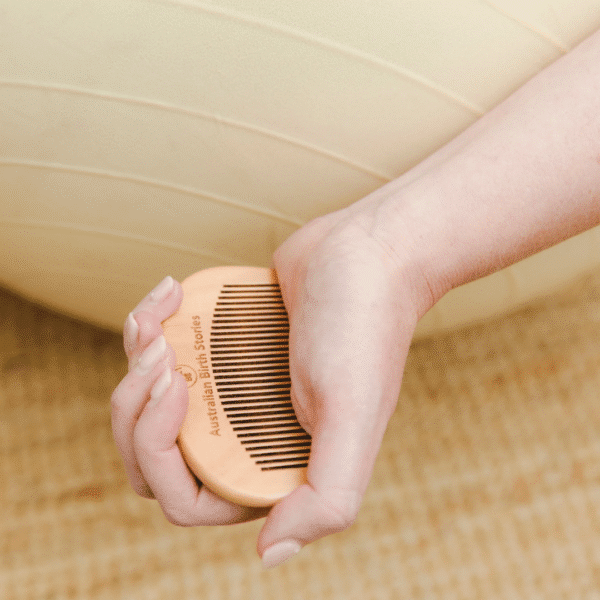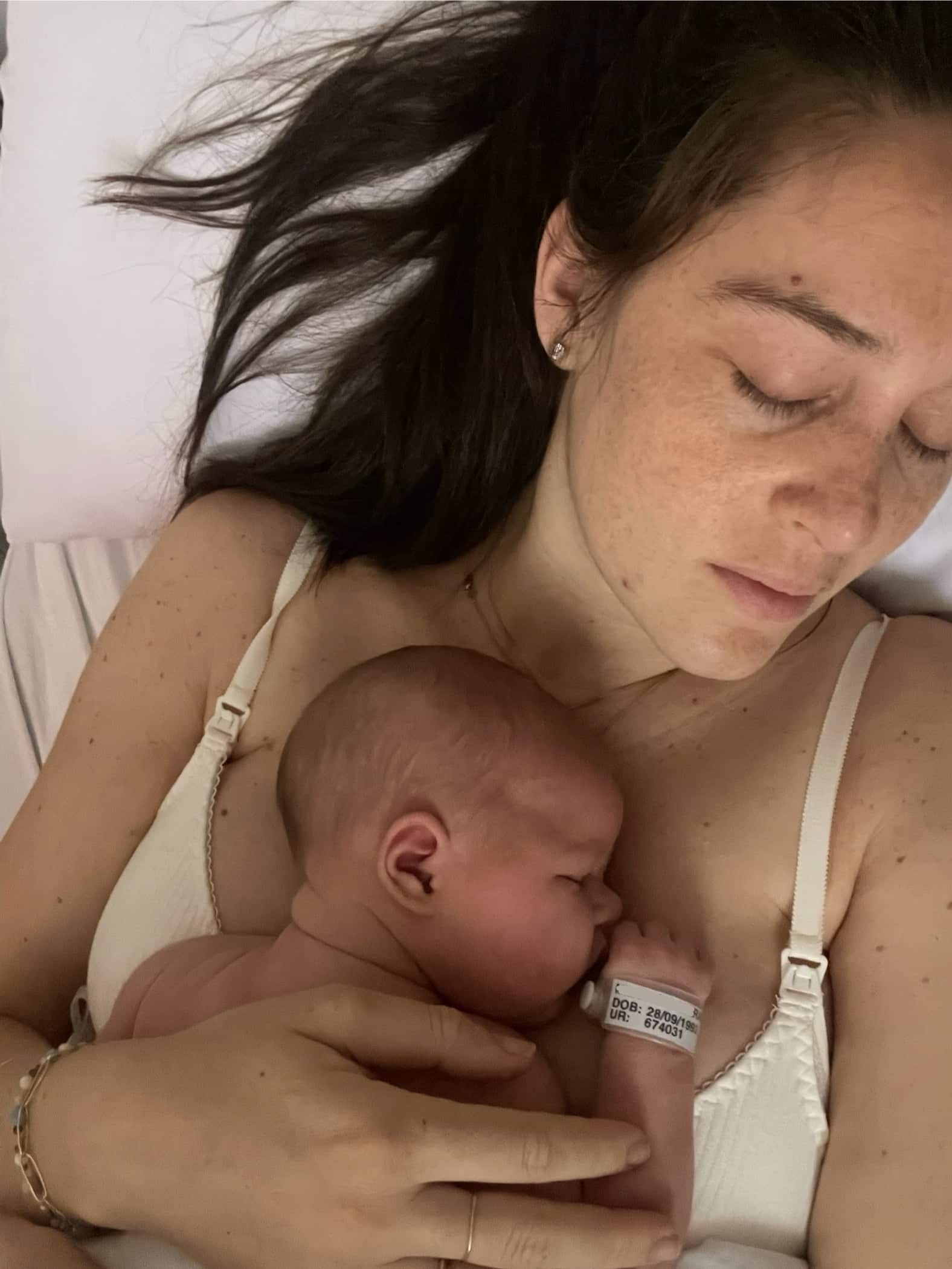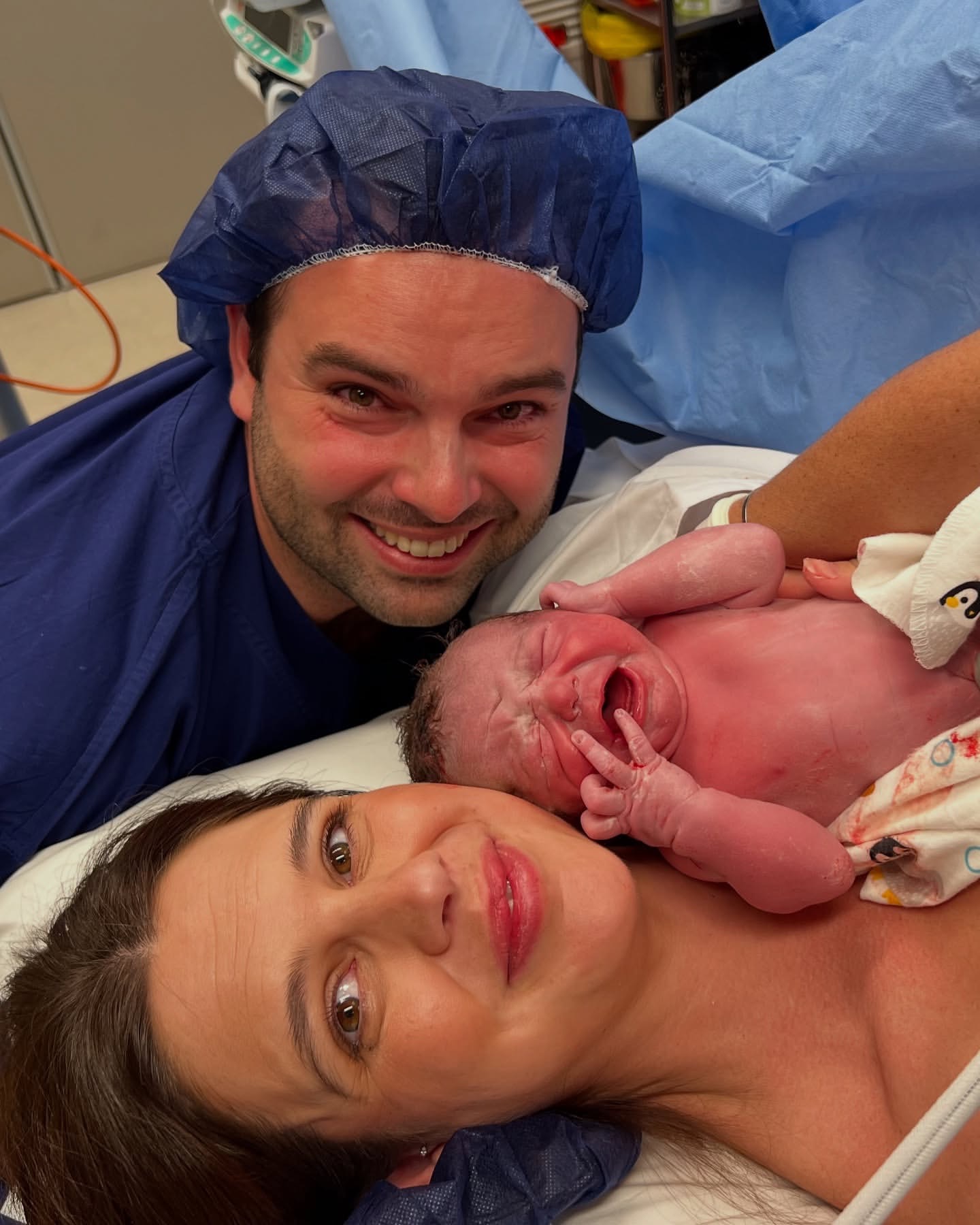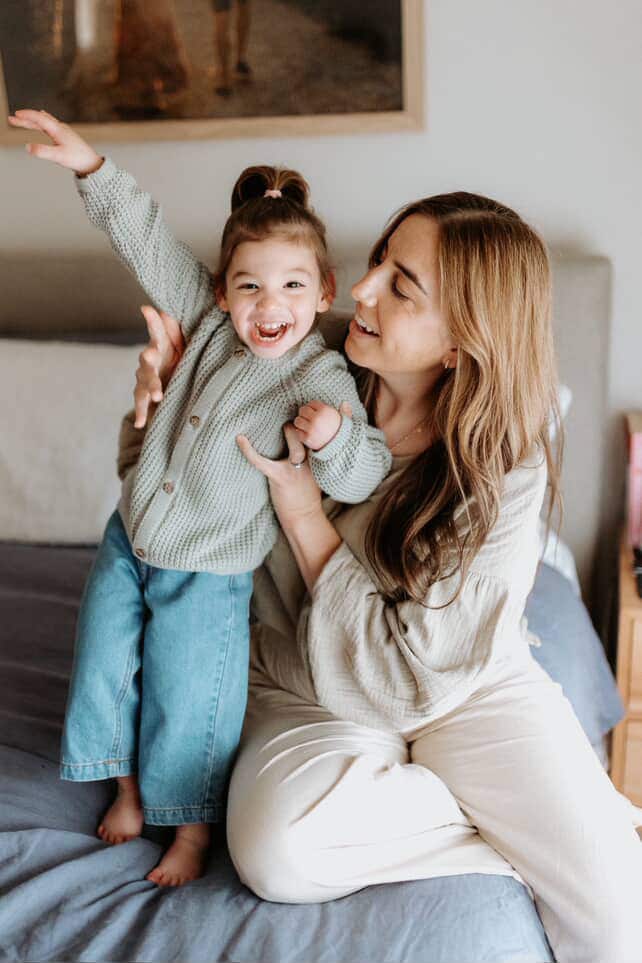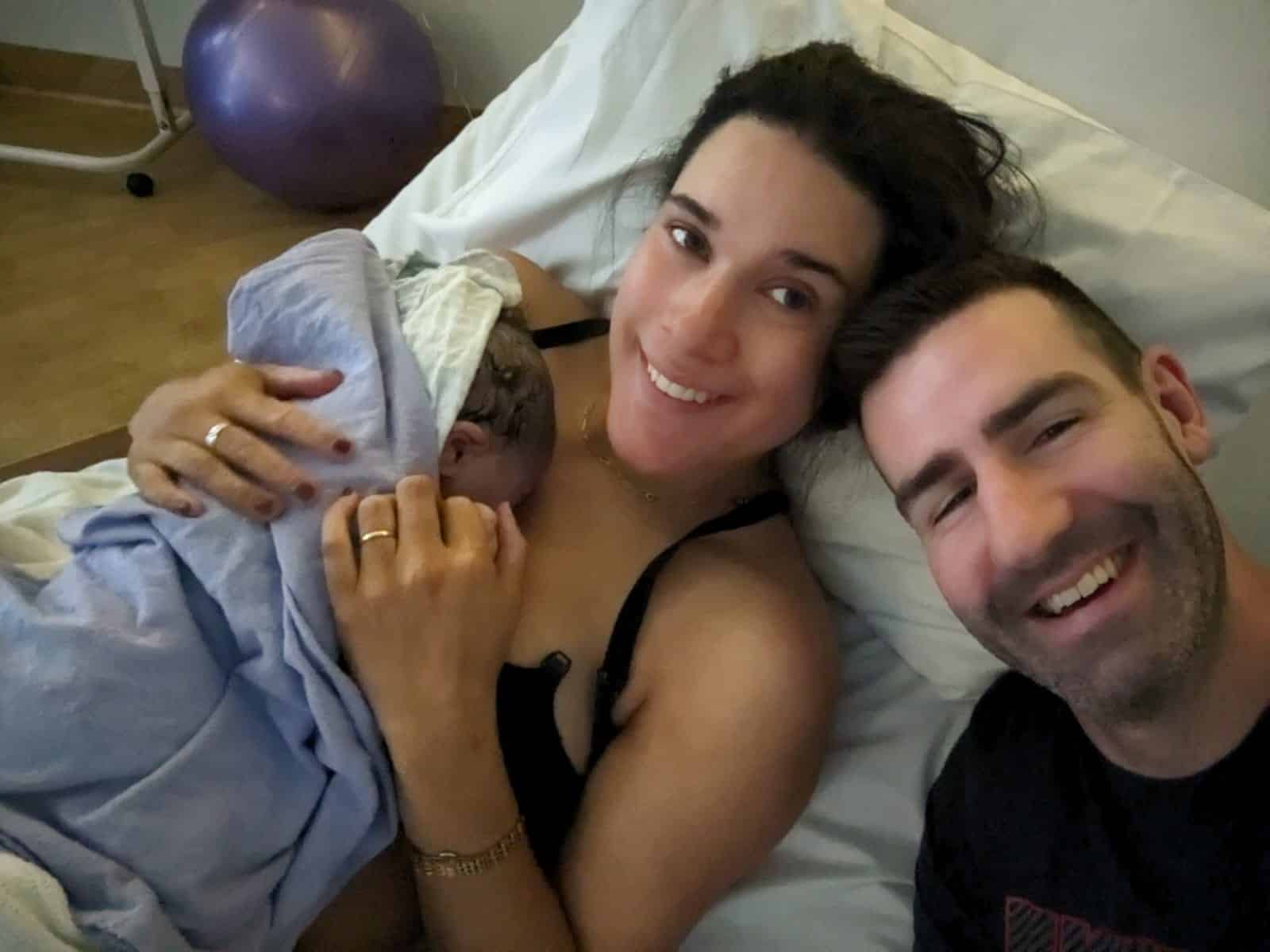Podcasts Nas
EPISODE 323
Nas
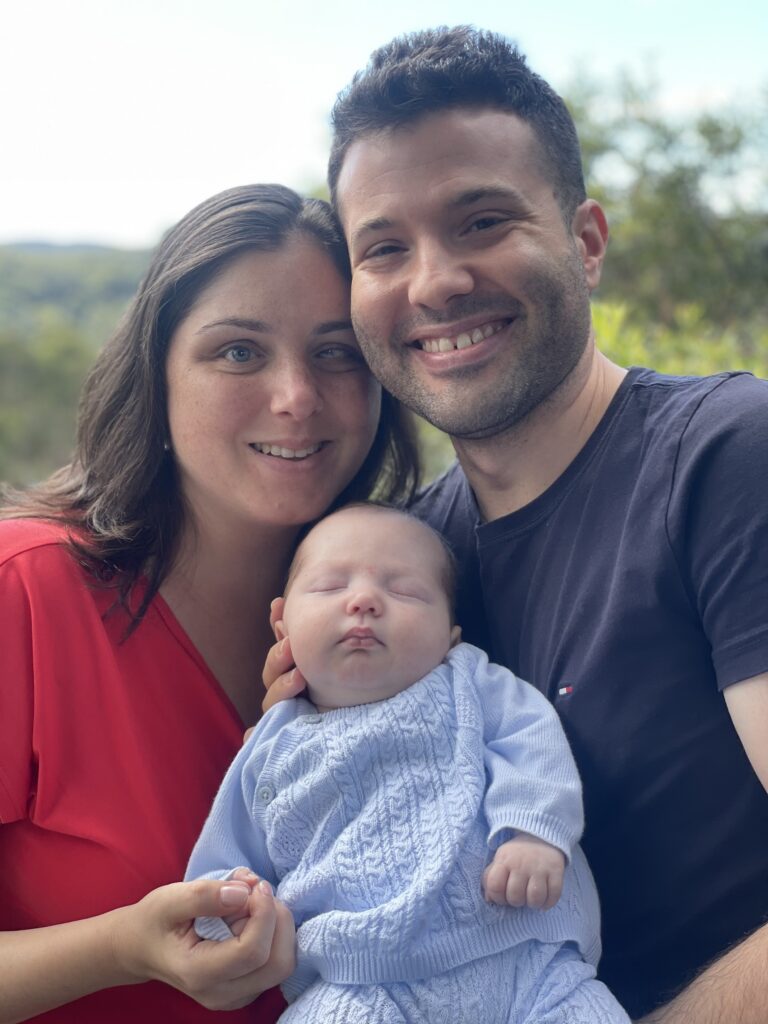
“I have multiple disabilities; I’m blind, I lost my vision at six months old and I have a neurological condition called charcot-marie-tooth disease which impacts my ability to feel; I have lack of sensitivity in my fingertips, hands and legs and it affects my balance.
“I never thought I’d have kids, to be honest. Once Tom and I met and decided that we wanted to spend the rest of our lives together we decided that we wanted to have a family. We spoke about all the things I needed to prepare for pregnancy and motherhood and there were a lot of conversations about timing.
“I think a lot of people even in my immediate circle didn’t think I would have children and I don’t blame them, I felt the same. What was a surprise was that we found out we were pregnant the night we went into the five month lockdown in Sydney. The night we came out of lockdown we went to tell our families and I think they were more shocked at how far along I was, not that we were pregnant.
“I always knew that I was going to be a high-risk pregnancy and I’d already talked to some high-risk obstetricians before I conceived about models of care and what I needed to do to prepare. My preparation involved lots of exercise physiology to make sure I was going to be able to carry a pregnancy and because of my balance issues, that I’d be able to stand up and carry the weight. I knew pretty quickly that I wanted to get into a high risk programme at one of the big Sydney hospitals; as soon as I found out I was pregnant I called and put my name down and I got in straight away. I had my own midwife and I was so in love with her and there were lots of tears when we parted.
“I chose not to have a birth plan, I was just very much of the view that what needs to be done medically, needs to be done. Mostly they were really conscious of my balance and if in late pregnancy I found the weight of my belly really challenging then bed rest may have been an option for me.
“At 35 weeks I’d been feeling a bit off; headaches and feeling faint. Tests showed everything was fine but at my 36 week scan they noticed that there was a problem with the resistance in the cord, the best way they described it was a garden hose being pinched shut. I was admitted straightaway and they told me I would be birthing in the next few days. Tom raced home to pack my bag and I was in hospital for four days; they were checking Lachy’s heartrate every hour for the first 24 hours. I was given steroids but I also had gestational diabetes so my sugars went through the roof once I’d had the steroids. It was very scary but I also knew I was in the right place and the nurses and midwives didn’t communicate any discrimination whatsoever. It was the first time I’d been in hospital and I completely trusted the people caring for me.
“We chose not to tell anyone we were in hospital because we wanted to be in our little bubble without questions and worries. We stretched it to 37+2 and he was breech and had been from 20 weeks. I personally just thought that he’d been like that since 20 weeks and if I had to have a caesarean, so be it.
“I was on the emergency list but it wasn’t a panic. Everyone was so professional and I felt like I was really in the right hands. I was terrified about the process of the caesarean but the way the medical team handled it was incredible.
“I’ve had a lot of time in hospital in my life and I have a phobias of hospitals particularly around anaesthesia. I was terrified of the spinal block because I’d heard a few terrible stories. My midwife wheeled me down and before I went into theatre everyone came out, introduced themselves, told me their roles and what they’d be doing and the anaesthetist was so calm and let Tom scrub up and come into theatre with me. It was the most beautiful experience because of the people that were there. I’ve never experienced anything so gentle and lovely in the hospital system before.
“It was a very surreal feeling, you can feel the tugging and pulling and tightness. He wasn’t crying at first and there was a bit of panic but then they brought him over to me and we did skin to skin which was really lovely and he was with us from then on.
“Before having Lachy I was really determined to breastfeed. I had meetings with a lactation consultant in pregnancy and I tried really hard to hand express in the last few weeks. I just expect it to happen, that I’d feel the latch and feel him sucking. For us, breastfeeding didn’t work. Lachy had a tongue tie and we got it snipped after it was classed as significant by three different lactation consultants. It was a lengthy routine of every three hours hand expressing, latching him, getting some milk or colostrum into a syringe, giving him a bottle with formula. He got so tired because of his tongue tie so he saw the breast as a sign of rest and comfort and wouldn’t feed there. To keep my milk supply I was up every three hours pumping and that was fine because Tom was off work for the first two months but it was exhausting and I didn’t feel like I was part of the feeding process. Once his tongue tie was snipped he was used to the bottle and I won’t lie, it made me sad. My supply started to dwindle and I couldn’t go to the park or out because I was pumping. It was really depressing and difficult. I wanted to sit and feed him whether it was with a bottle or breast and I knew once Tom went to work it wasn’t going to be sustainable. I also quickly realised that breastfeeding was very visual, I couldn’t tell if his mouth was open or whether he was on there properly and whether he could breathe well through his nose while feeding. Breastfeeding is natural but it’s not natural for all of us. There were lots of tears and in the end I was so torn. Another pang of sadness was all my blind friends who are also mothers managed to breastfeed.
“I’m very verbal with him because I have to be and he’s so vocal and I think it’s because I’m the same. It’s been a lot of trial and error and figuring things out. Nappy changes have been interesting but there’s no way around it. The midwives in the hospital helped me but never took over, they stood back and only helped if I needed it.”
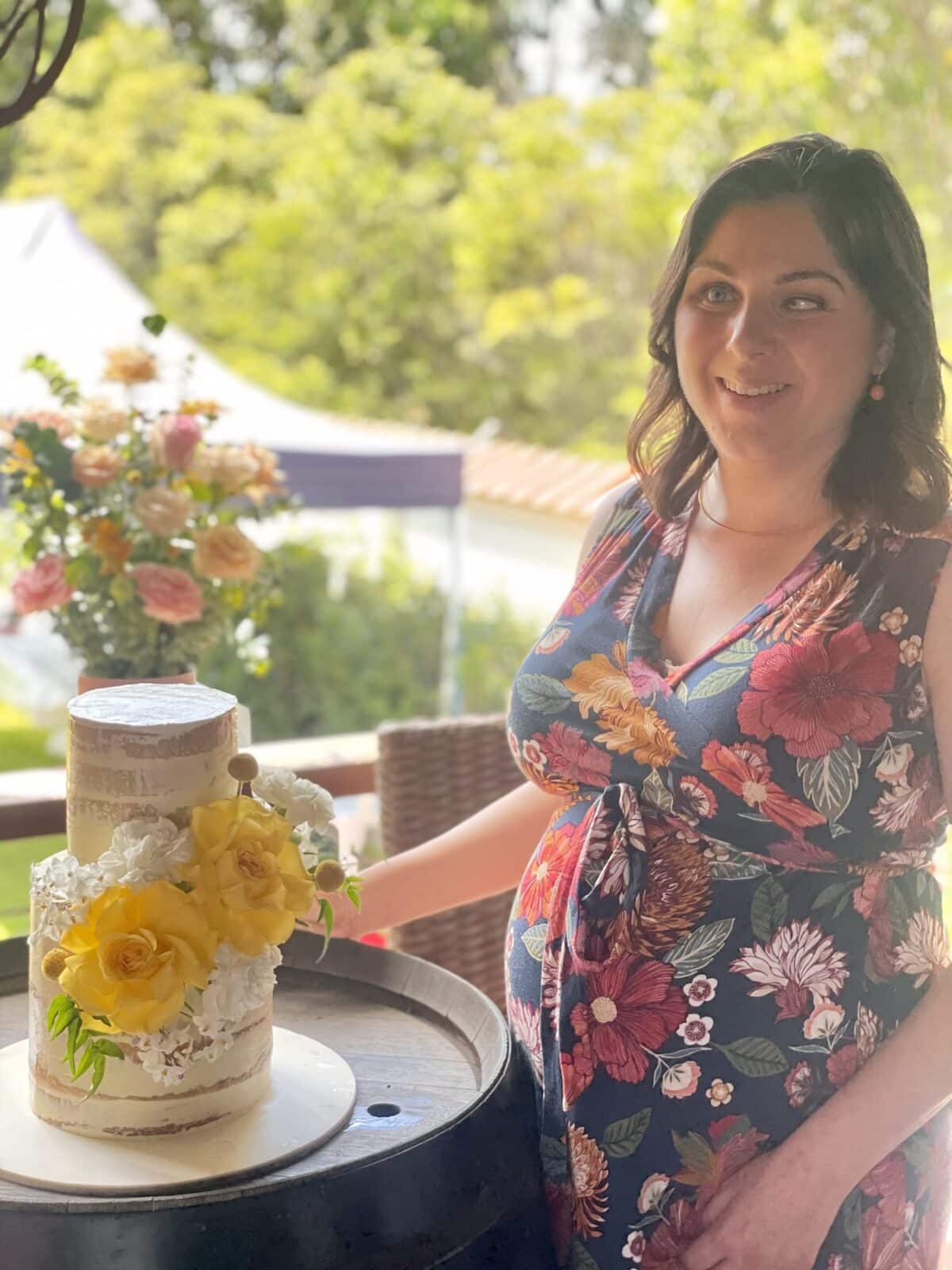
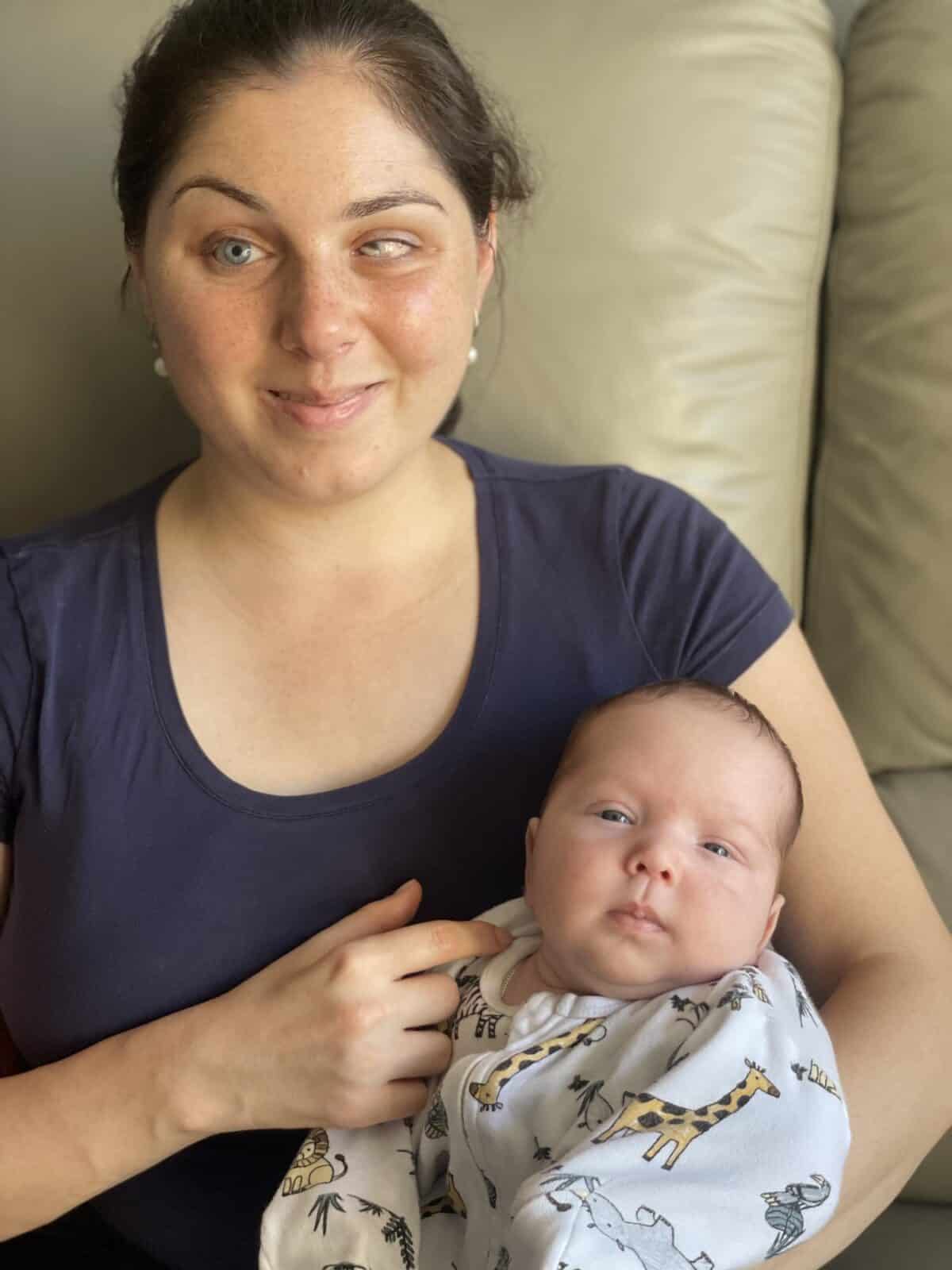
Topics Discussed
Breech, Caesarean birth, Charcot-marie-tooth disease, Disability discrimination, Formula feeding, Lactation consultant, Postpartum doula, Vision impairment
Categories
Related Products
-
Birth Combs: Harness Your Body’s Natural Pain Relief
$24.95Crafted from smooth, natural wood, our birth combs activate specific pressure points in your hands that trigger your body’s innate pain-relieving responses.
Join the conversation
Sign up to get the latest updates, freebies, podcast releases straight into your inbox
@AustralianBirthStories
Follow along with us
@AustralianBirthStories
Follow along with us
@AustralianBirthStories
Follow along with us
@AustralianBirthStories
Follow along with us
@AustralianBirthStories
Follow along with us
@AustralianBirthStories
Follow along with us
@AustralianBirthStories
Follow along with us
@AustralianBirthStories
Follow along with us
@AustralianBirthStories
Follow along with us
@AustralianBirthStories
Follow along with us
@AustralianBirthStories
Follow along with us
@AustralianBirthStories
Follow along with us
